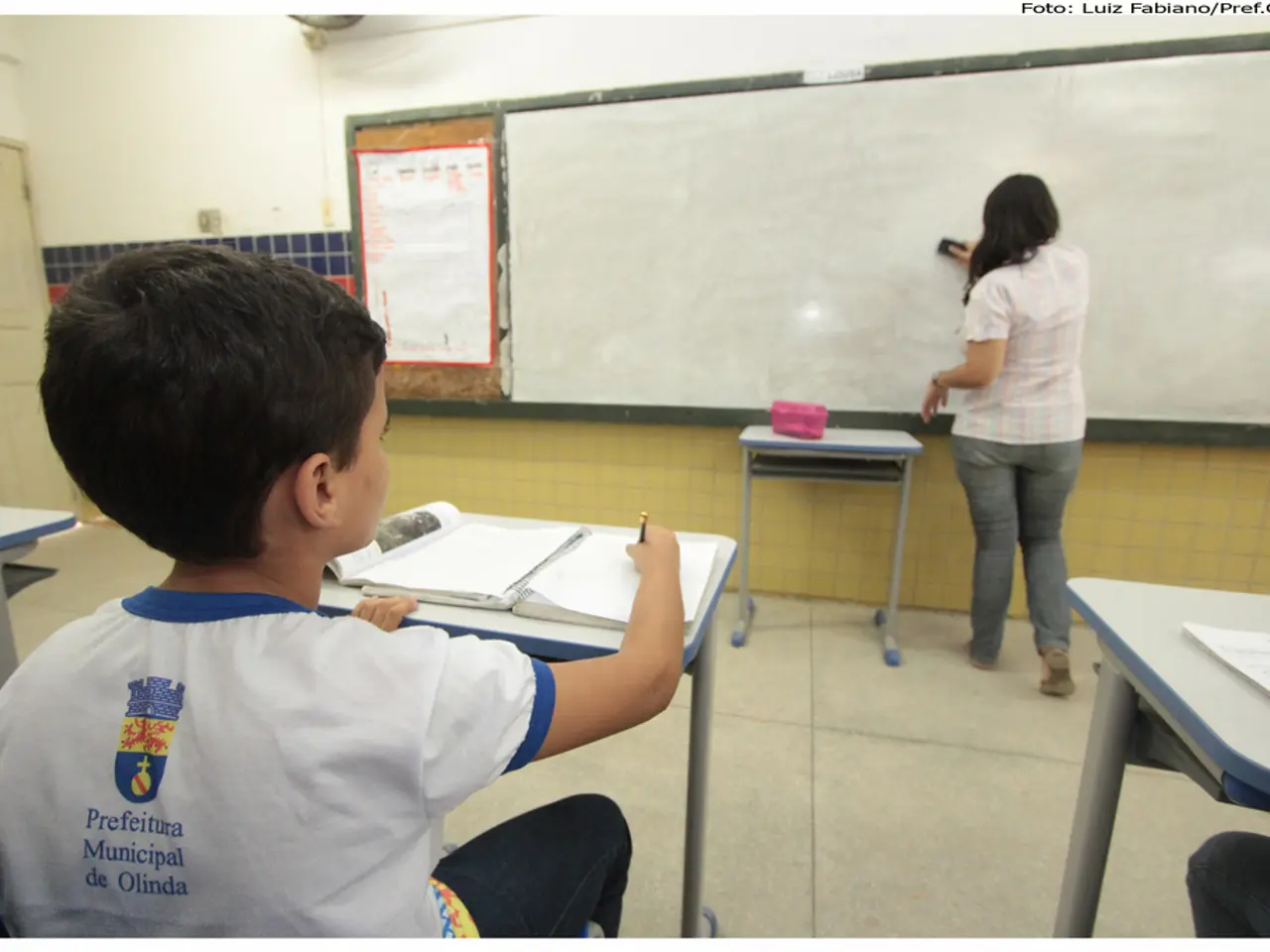Establishing Appropriate Learning Routines and Assigned Homework for First-Graders
In the quest to help children develop good study habits, parents can consider a variety of strategies and resources. Here are some practical ideas to create a structured, supportive, and motivating learning environment at home:
**1. Establish a Consistent Daily Schedule**
Establishing a predictable routine that includes regular mealtimes, bedtimes, and designated study periods is crucial. Even if there is no assigned homework, a set time each day for studying signals that learning is a valued and non-negotiable part of daily life. This consistency helps children develop discipline, responsibility, and reduces academic stress by making study time a natural habit.[1]
**2. Designate a Dedicated, Distraction-Free Workspace**
Provide a specific area in your home where your child can focus on schoolwork. This space should be free from distractions like TV, mobile phones, or noisy environments, and stocked with necessary school supplies. Having a consistent spot associated with studying helps form a strong mental connection between the place and focused learning.[2][3]
**3. Build and Maintain a Routine**
Encourage a daily rhythm that balances study, meals, physical activity, and relaxation. A dependable routine not only reduces conflicts over homework but also helps children anticipate what is expected, which builds confidence and reduces resistance to studying.[2][4]
**4. Foster a Positive Learning Atmosphere**
Encourage open communication where your child feels comfortable sharing questions and concerns about their schoolwork. Listen actively and provide positive feedback to support their academic challenges. A supportive home environment strengthens your child's motivation and emotional wellbeing.[4]
**5. Encourage a Growth Mindset**
Teach children that intelligence and skills develop through effort and persistence. Praise their hard work rather than innate talent to motivate them to embrace challenges and learn from mistakes. This mindset promotes resilience and long-term academic success.[4]
**6. Utilise Educational Resources and Technology Wisely**
Incorporate a variety of learning materials like books, documentaries, podcasts, and virtual tours to keep learning engaging and broaden knowledge. Leverage educational apps and online tools but monitor screen time to ensure it is productive and balanced with offline studying.[4]
**Recommended Resources for Parents:** - Educatly’s guide on building study habits explains how to integrate study routines into daily life effectively.[1] - Fathers.com offers practical, dad-approved tips on creating a study-friendly home environment with easy-to-follow strategies.[2][3] - JetLearn emphasises the importance of fostering a growth mindset and open communication for academic success.[4]
In addition to these strategies, engaging in activities like bird watching can also contribute to a child's learning experience. By setting up bird feeders in the backyard, children can observe birds eating and chirping, providing a unique opportunity for learning about different species and developing patience and observation skills.[5] Encouraging children to keep a record of the different types of birds they spot can aid in identification and serve as a fun, educational project.[6]
By combining these strategies, parents can create a structured, supportive, and motivating environment that helps children develop lifelong, effective study habits.
- To supplement academic growth, consider incorporating science documentaries or videos related to 4-h projects into your child's learning-and-wellness routine.
- For a well-rounded education-and-self-development approach, encourage your child to read books about different subjects such as history, art, and biology, in addition to their school curriculum.
- Incorporate home-and-garden projects, like gardening or DIY crafts, to develop your child's practical skills while promoting a healthy lifestyle that connects learning with real-world applications.
- To nurture parenting skills, consider joining workshops or onlineforums focused on raising confident and resilient children, creating a community of support for you and your family's learning journey.




